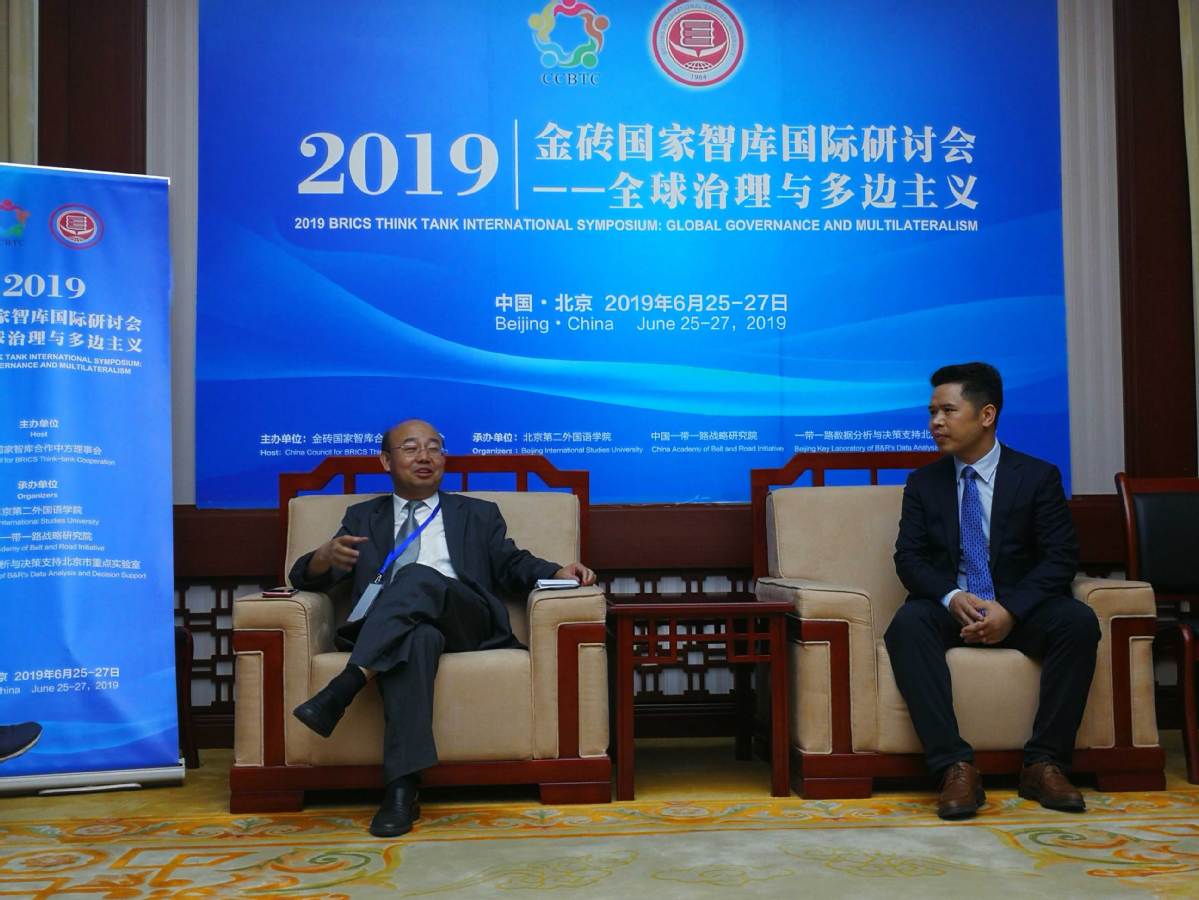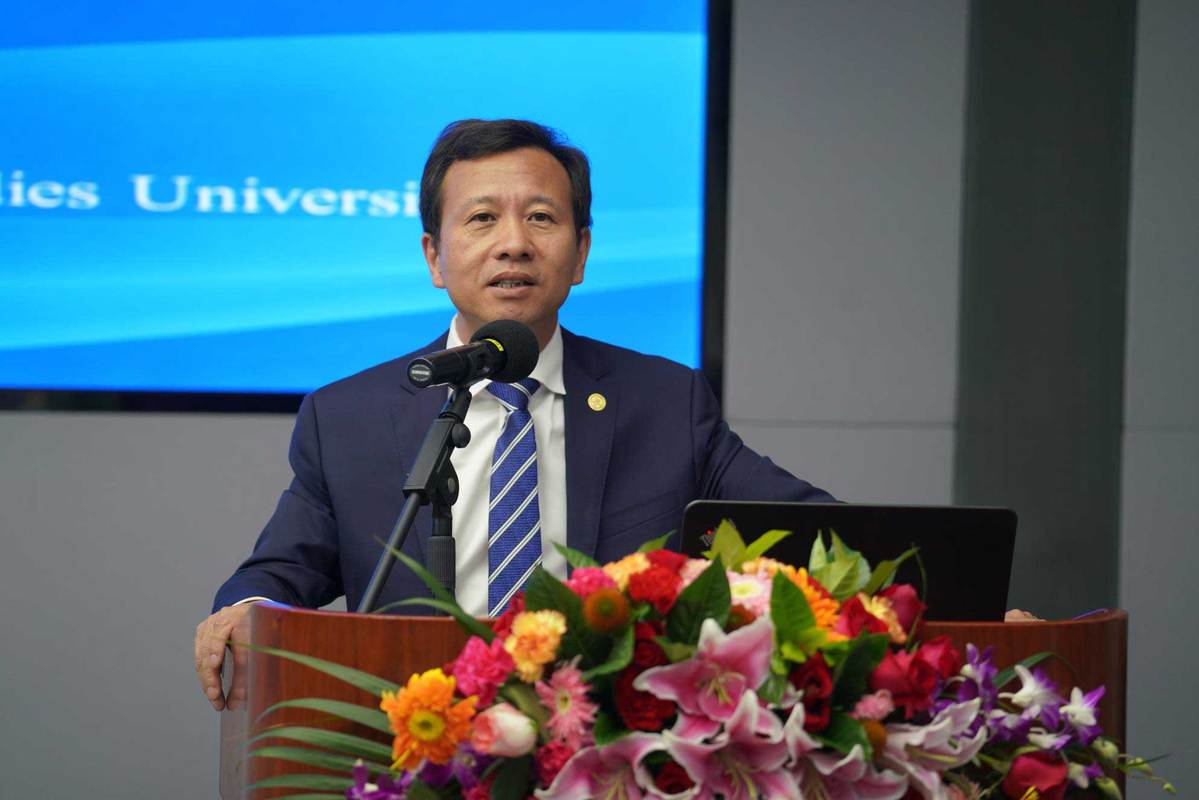BRICS think tank symposium held in Beijing


The first 2019 BRICS Think Tank International Symposium with the theme of global governance and multilateralism was held at Beijing International Studies University on June 26.
Scholars from the five BRICS countries – Brazil, Russia, India, China and South Africa – reached a consensus that BRICS, which upholds the principles of independence, fairness and transparency, should play a more important role in global governance. Joint efforts are needed to defend multilateralism against the tide of unilateralism and protectionism for the sake of the interests of emerging and developing countries. The BRICS countries should comprehensively strengthen cooperation in fields such as trade, investment, the digital economy, technological innovation, energy and resources, and infrastructure.
In his keynote speech, Long Guoqiang, vice-director of the Development Research Center of the State Council, called for BRICS countries to make more efforts to promote reform of the World Trade Organization as representatives of emerging and developing countries. He said that WTO reform should seek common ground between developing countries and developed countries to balance the interests of WTO member countries and better promote improved global governance.

“The principles of extensive consultation, joint contributions and shared benefits that characterize the China-proposed Belt and Road Initiative can promote fairer global governance,” said Luan Jianzhang, secretary-general of the China Council for the BRICS Think Tank Cooperation.
At a media briefing, when asked whether the BRICS countries will still be cohesive in an unstable world with intensifying differences, Luan said the growth and potential of BRICS in the past 10 years enables it to step forward. Meanwhile, he stressed it is urgent for BRICS countries to actively and purposefully enhance coordination, particularly in scientific and technological innovation “that is of vital importance in the current period”. And “the BRICS countries should figure out common values of their own”.
Ji Jinbiao, president of Beijing International Studies University, called for strengthened people-to-people exchanges based on think tanks and colleges that can invigorate multilevel international cooperation in all areas.

Afterward, the participants discussed multilateralism as a defense against rising unilateralism, responsibilities and roles of BRICS in global governance, reshaping the rules of the global economic and trade system, and how BRICS countries can work together for improved global governance in the context of the new industrial revolution.
The China Council for the BRICS Think Tank Cooperation was the host of the symposium. Beijing International Studies University and the China Academy of the Belt and Road Initiative co-organized the symposium with the Beijing Key Laboratory of Belt and Road Initiative Data Analysis and Decision Support at Beijing International Studies University.

































